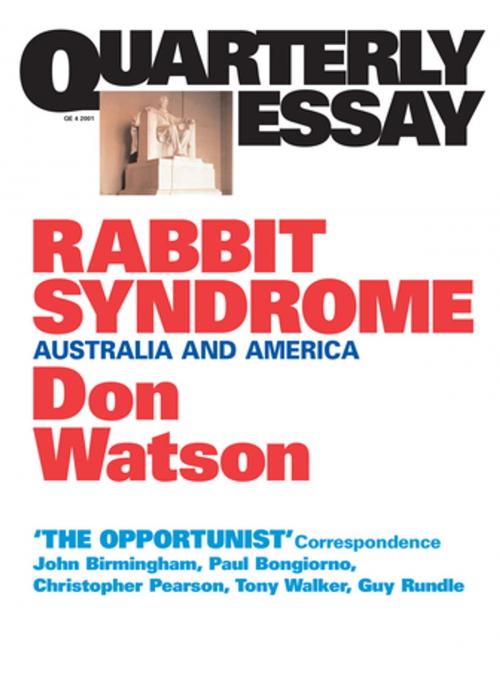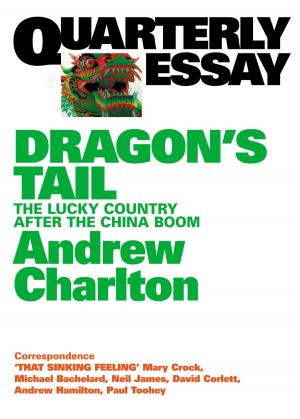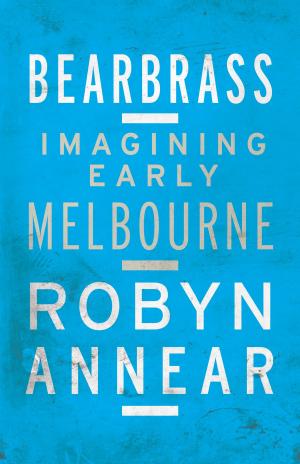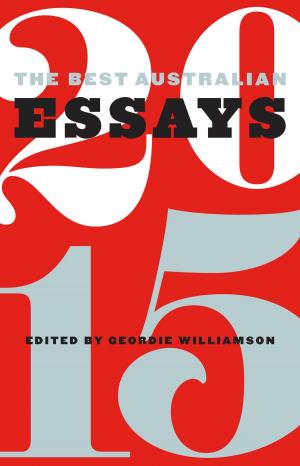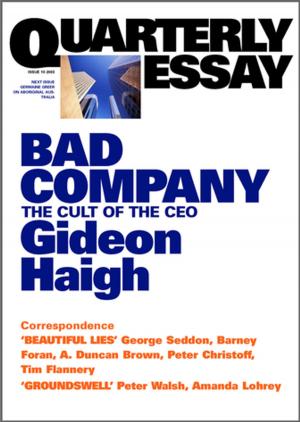Quarterly Essay 4 Rabbit Syndrome
Australia and America
Nonfiction, Social & Cultural Studies, Social Science, Anthropology| Author: | Don Watson | ISBN: | 9781921825033 |
| Publisher: | Schwartz Publishing Pty. Ltd | Publication: | December 1, 2001 |
| Imprint: | Quarterly Essay | Language: | English |
| Author: | Don Watson |
| ISBN: | 9781921825033 |
| Publisher: | Schwartz Publishing Pty. Ltd |
| Publication: | December 1, 2001 |
| Imprint: | Quarterly Essay |
| Language: | English |
In Rabbit Syndrome Don Watson takes an analytical look at the ways in which the Australian imagination has always been dominated by America. Why are they so much better than we are? Even when it comes to producing books like the Updike "Rabbit" sequence that tell us what we are like? Why are they also a land of executioners who have nevertheless created the least bad empire the world has seen? Can we really expect to be deputies to America? And what about our own sacred story (the progressive one) that we have sold for the sake of the Americanisation of our own society? If we can't have a friendly independent relationship with America, why don't we go the whole hog and join them?
In a dark, brooding, moody essay, Don Watson plays on the paradoxes of Australia's feeling about America and offers a scathing view of an Australian culture that is asking to be engulfed by its great and powerful friend because the mental process is already so advanced. This is a brilliant meditation round a set of paradoxes that are central to our long-term anxieties and hopes.
‘The Australian story does not work anymore, or not well enough … to hang the modern story on … The most useful thing is to recognise that … we took the biggest step we have ever taken towards the American social model. And this has profound implications for how we think of Australia and how we make it cohere.’ —Don Watson, Rabbit Syndrome
‘… this is a Quarterly Essay that plays on our most fundamental fears, including the most terrifying of all, that we shall cease to exist because we have never been.’ —Peter Craven
Don Watson is a historian, author and public speaker. After writing political satire for Max Gillies and speeches for the Victorian premier John Cain, he became Paul Keating’s speechwriter in 1992 and wrote the award winning biography Recollections of a Bleeding Heart: Paul Keating Prime Minister (2002). His Quarterly Essay, Rabbit Syndrome – Australia and America, won the inaugural Alfred Deakin essay prize in the Victorian premier’s literary awards. His other books include Death Sentence: The Decay of Public Language, American Journeys and Bendable Learnings: The Wisdom of Modern Management.
In a dark, brooding, moody essay, Don Watson plays on the paradoxes of Australia's feeling about America and offers a scathing view of an Australian culture that is asking to be engulfed by its great and powerful friend because the mental process is already so advanced. This is a brilliant meditation round a set of paradoxes that are central to our long-term anxieties and hopes.
‘The Australian story does not work anymore, or not well enough … to hang the modern story on … The most useful thing is to recognise that … we took the biggest step we have ever taken towards the American social model. And this has profound implications for how we think of Australia and how we make it cohere.’ —Don Watson, Rabbit Syndrome
‘… this is a Quarterly Essay that plays on our most fundamental fears, including the most terrifying of all, that we shall cease to exist because we have never been.’ —Peter Craven
Don Watson is a historian, author and public speaker. After writing political satire for Max Gillies and speeches for the Victorian premier John Cain, he became Paul Keating’s speechwriter in 1992 and wrote the award winning biography Recollections of a Bleeding Heart: Paul Keating Prime Minister (2002). His Quarterly Essay, Rabbit Syndrome – Australia and America, won the inaugural Alfred Deakin essay prize in the Victorian premier’s literary awards. His other books include Death Sentence: The Decay of Public Language, American Journeys and Bendable Learnings: The Wisdom of Modern Management.
In Rabbit Syndrome Don Watson takes an analytical look at the ways in which the Australian imagination has always been dominated by America. Why are they so much better than we are? Even when it comes to producing books like the Updike "Rabbit" sequence that tell us what we are like? Why are they also a land of executioners who have nevertheless created the least bad empire the world has seen? Can we really expect to be deputies to America? And what about our own sacred story (the progressive one) that we have sold for the sake of the Americanisation of our own society? If we can't have a friendly independent relationship with America, why don't we go the whole hog and join them?
In a dark, brooding, moody essay, Don Watson plays on the paradoxes of Australia's feeling about America and offers a scathing view of an Australian culture that is asking to be engulfed by its great and powerful friend because the mental process is already so advanced. This is a brilliant meditation round a set of paradoxes that are central to our long-term anxieties and hopes.
‘The Australian story does not work anymore, or not well enough … to hang the modern story on … The most useful thing is to recognise that … we took the biggest step we have ever taken towards the American social model. And this has profound implications for how we think of Australia and how we make it cohere.’ —Don Watson, Rabbit Syndrome
‘… this is a Quarterly Essay that plays on our most fundamental fears, including the most terrifying of all, that we shall cease to exist because we have never been.’ —Peter Craven
Don Watson is a historian, author and public speaker. After writing political satire for Max Gillies and speeches for the Victorian premier John Cain, he became Paul Keating’s speechwriter in 1992 and wrote the award winning biography Recollections of a Bleeding Heart: Paul Keating Prime Minister (2002). His Quarterly Essay, Rabbit Syndrome – Australia and America, won the inaugural Alfred Deakin essay prize in the Victorian premier’s literary awards. His other books include Death Sentence: The Decay of Public Language, American Journeys and Bendable Learnings: The Wisdom of Modern Management.
In a dark, brooding, moody essay, Don Watson plays on the paradoxes of Australia's feeling about America and offers a scathing view of an Australian culture that is asking to be engulfed by its great and powerful friend because the mental process is already so advanced. This is a brilliant meditation round a set of paradoxes that are central to our long-term anxieties and hopes.
‘The Australian story does not work anymore, or not well enough … to hang the modern story on … The most useful thing is to recognise that … we took the biggest step we have ever taken towards the American social model. And this has profound implications for how we think of Australia and how we make it cohere.’ —Don Watson, Rabbit Syndrome
‘… this is a Quarterly Essay that plays on our most fundamental fears, including the most terrifying of all, that we shall cease to exist because we have never been.’ —Peter Craven
Don Watson is a historian, author and public speaker. After writing political satire for Max Gillies and speeches for the Victorian premier John Cain, he became Paul Keating’s speechwriter in 1992 and wrote the award winning biography Recollections of a Bleeding Heart: Paul Keating Prime Minister (2002). His Quarterly Essay, Rabbit Syndrome – Australia and America, won the inaugural Alfred Deakin essay prize in the Victorian premier’s literary awards. His other books include Death Sentence: The Decay of Public Language, American Journeys and Bendable Learnings: The Wisdom of Modern Management.
